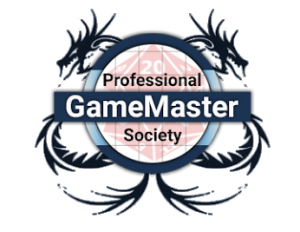Guidelines
Best Practice Guidelines

General
- Communicate with your players. You have to know what they want from it and let them know what you have to offer.
- Prepare as much as you can/need to. If you’re getting paid, you have to be on top of your game.
- Always maintain a professional demeanor with Players and your fellow Gamemasters. We should seek to work together to keep the industry friendly, healthy and collaborative.
New Players
- Be upfront about whether or not you accept players without prior experience. If you do work with them, be patient and actually work with them. Rules can be confusing.
- If you aren’t a good fit as a DM for a player, recommend other DM’s if possible.
Session Zero
- Use Session-Zero to establish a rapport with your Players, discuss the nature and characteristics of your game, and generate characters.
One-Shots
- Use One-Shots to introduce new game systems to new Players.
- Make sure they can be more or less easily completed within one game session if reasonable actions are taken by the Players.
- Try to think ahead about how to complete the One-Shot satisfactorily even if the Players do not actually complete everything you had in store for the game.
Challenges & Solutions
- A friendly tone will generally enhance the atmosphere around the table and ease working through difficulties in the social dynamic as they arise.
- Set clear boundaries around what times players can interact with you.
- Watch yourself for temptations to manipulate relationships with players.
- If players accuse you of bias for or against individuals at the table, listen to them. Ask the table as a whole if the perception is accurate. If so, apologize and change your behavior.
- Be specific about what portion of their conduct is unacceptable in your warning, clear communication is the best remedy.
- Be aware that manipulation and passive aggressive behaviors by one player can interfere with the group, so be ready and able to provide warnings, and to use The Boot when necessary.

